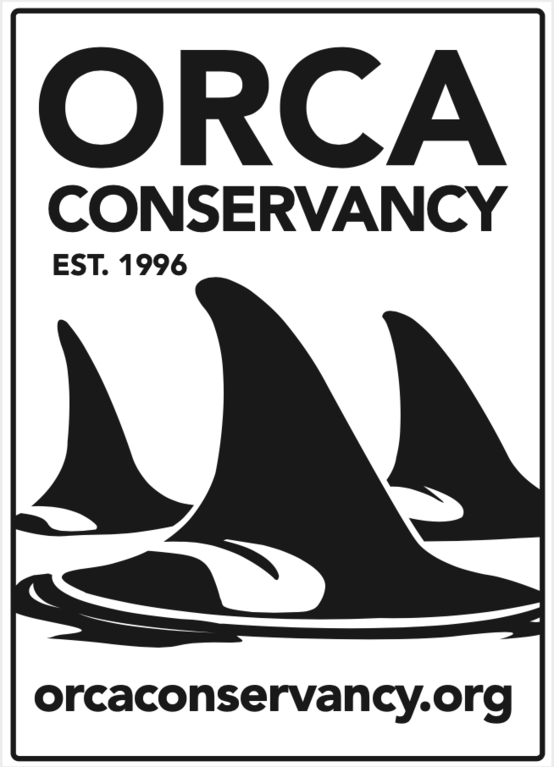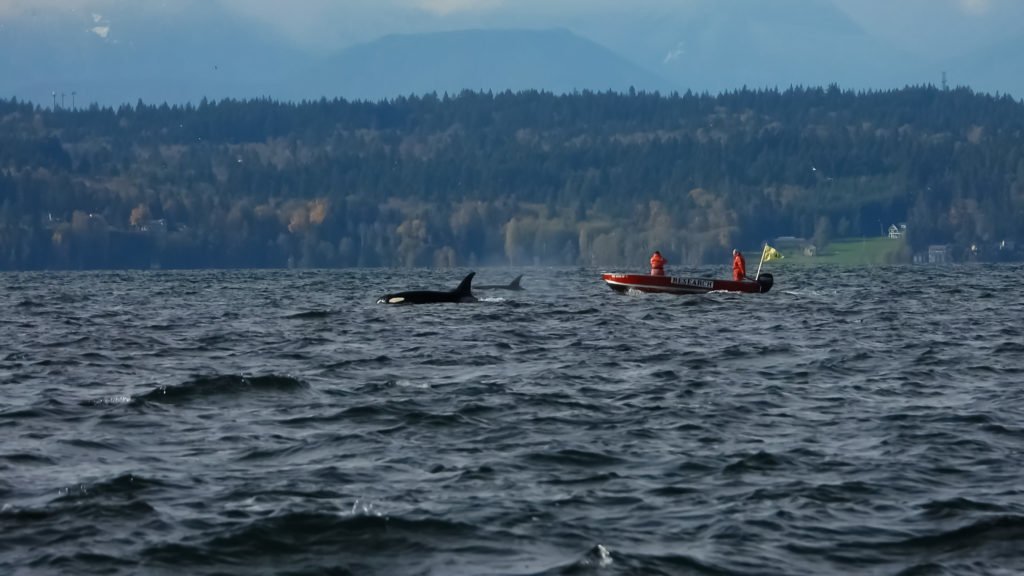NOAA 5-Year Review on Status of Southern Resident Killer Whales
Earlier this month NOAA (National Oceanic and Atmospheric Administration) released their 5-year review of the endangered Southern Resident killer whale population. The conclusion of the review was that the species continues to face a high risk of extinction and should remain listed as endangered.
Under section 4(c)(2) of the Endangered Species Act, NOAA is required to conduct a review of the listed species once every five years to determine whether the species is eligible for downlisting or needs to remain listed as endangered. While some of the criteria for downlisting and delisting had been met, NOAA determined that the overall status of the population is not consistent with a healthy, recovered population. Despite the coordinated implementation of recovery efforts, the SRKW population has not grown within the past 5 years. Currently, there are only 73 southern resident orcas remaining as of this writing.
Within the review, NOAA sites 3 major threats to the SRKW population, prey scarcity, pollution, and vessel noise. Throughout the report, they also mention growing concerns such as climate change, habitat degradation, and oil spills. NOAA stated that it was unclear which of the 3 major threats is the most important to recovery efforts and that the threats likely interact producing additive or synergistic effects, meaning they all work together to add additional stress on a struggling population.
An active research program through NOAA is underway to gather more information about the biology of the whales, habitat use and distribution, how threats impact population, and monitor population status in order to inform recovery.
Over the course of the past 5 years, NOAA states they had made important strides in recovery efforts which include:
- Expanding critical habitat
- Limiting commercial and recreational fishing on Chinook salmon in years of low abundance
- Releasing more hatchery salmon to supplement orca prey
- Funding restoration of habitat essential to the salmon the whales depend on as prey.
While these actions are important, the findings from the 5-year review show that more must be done in order to prevent this population from going extinct.
We will continue to work alongside our partners, including NOAA, to execute and implement meaningful action centered around the major threats facing the critically endangered SRKWs, such as salmon enhancement projects, habitat restoration, vessel noise mitigation, research, and more.
You can help us in our efforts by making a public comment on proposed 2022 legislation (Washington State residents). We also have other ways you can help get involved such as volunteering, or making a tax-deductible donation which goes to support our work in the recovery of the endangered Southern Residents.
Read the NOAA 5-Year Review: Here
Learn about the 2022 Legislation: Here

